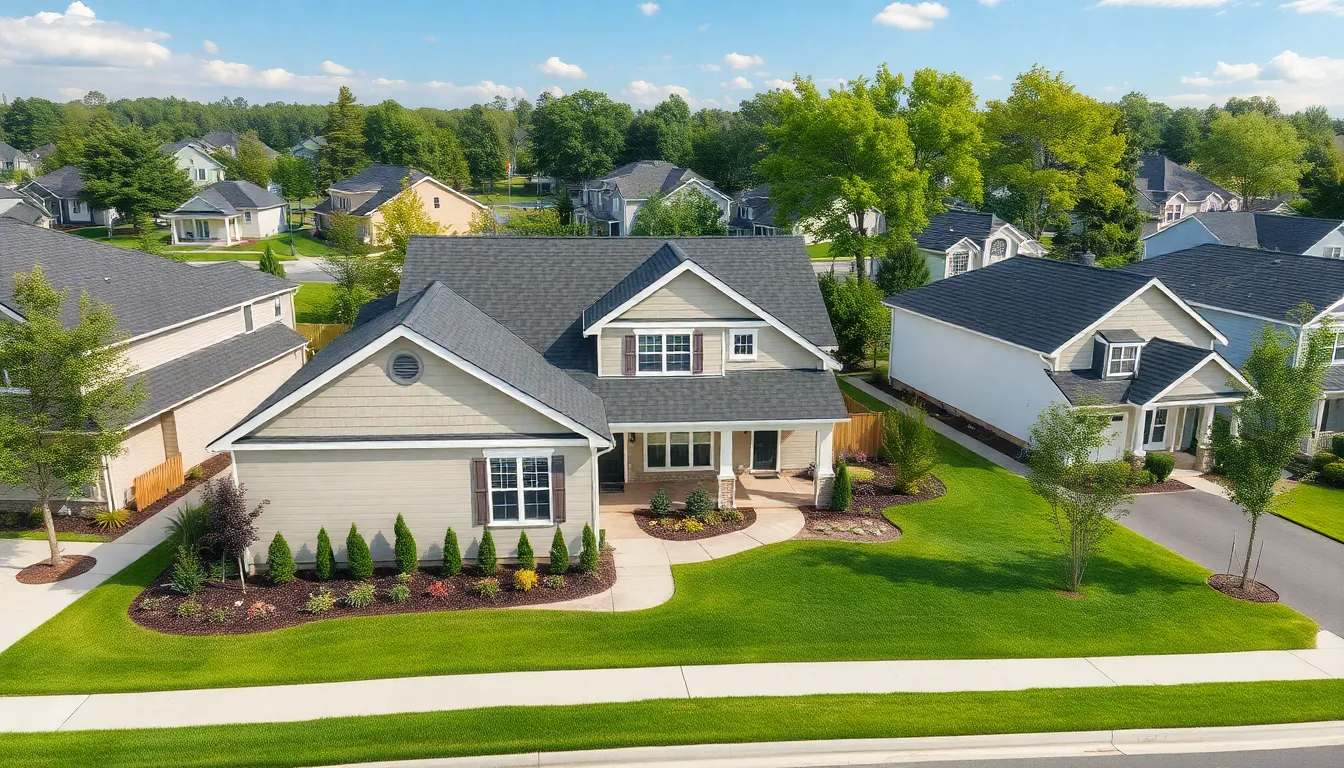Table of Contents
ToggleIn a world where knowing your home’s worth is as crucial as knowing how to brew a perfect cup of coffee, Home IQ steps in to save the day. Imagine having the power to decode your home’s value, energy efficiency, and even its quirks—all at your fingertips. It’s like having a personal real estate guru whispering sweet nothings about your property right into your ear.
Understanding Home IQ
Home IQ refers to a comprehensive assessment of a property’s value, energy efficiency, and distinctive features. This tool equips homeowners with insights that enhance decision-making regarding their real estate investments.
Definition of Home IQ
Home IQ encompasses metrics that evaluate home value, energy use, and personal characteristics. It serves as a digital dashboard that aggregates data from various sources, enabling homeowners to monitor their property effectively. Home IQ analyzes market trends, local sales data, and property upgrades, presenting complex information in an accessible format. This clarity supports homeowners in understanding their investments while also making informed choices about improvements or sales.
Importance of Home IQ
Home IQ plays a crucial role in real estate management. By knowing a home’s value, homeowners maximize financial returns. Evaluating energy efficiency through Home IQ can lead to substantial cost savings on utility bills. Understanding unique characteristics enhances marketability and informs renovation decisions. As property markets fluctuate, having accurate insights empowers homeowners to make strategic moves. Home IQ not only increases awareness but also promotes confidence in managing property investments efficiently.
Factors Influencing Home IQ

Home IQ depends on several key factors that shape a property’s value and potential. Understanding these influences enhances a homeowner’s ability to make informed decisions.
Location
Location significantly impacts Home IQ. Properties situated in high-demand areas typically command higher values. Proximity to schools, public transport, and amenities enhances desirability. Neighborhood safety and community reputation contribute to overall appeal. Environmental factors such as parks and waterfront views also play a crucial role. The effects of local job markets and economic conditions can elevate or diminish property values quickly.
Property Features
Property features directly influence Home IQ. Characteristics like square footage, the number of bedrooms, and bathrooms define a home’s marketability. Modern kitchens and energy-efficient appliances increase a home’s attractiveness. Additional elements such as swimming pools, landscaping, and outdoor spaces add value. Home upgrades can effectively impact appraisals, making it essential to consider renovations strategically.
Market Trends
Market trends affect Home IQ significantly. Fluctuations in interest rates can lead to changes in buyer demand. Seasonal trends determine optimal selling times, influencing how quickly a property sells. Local housing supply, including new constructions and renovations, shapes competitiveness in the market. Awareness of economic indicators like unemployment rates can inform potential shifts in property value. Staying updated on these trends helps homeowners strategize effectively.
Assessing Your Home IQ
Assessing Home IQ involves using specific tools and resources that provide valuable insights into property performance and market conditions. Homeowners can leverage online resources like Zillow or Realtor.com for property estimates. Local government websites often offer property tax assessments as well. Using these platforms helps homeowners gauge their home’s current market value and track fluctuations.
Professionals can perform valuations, offering authoritative assessments of a property’s worth. Engaging licensed appraisers ensures an accurate understanding of home value based on comparable properties and local market data. Real estate agents also contribute valuable insight through comparative market analysis. Both resources provide depth beyond online estimates, allowing homeowners to make informed financial decisions.
Improving Your Home IQ
Improving Home IQ involves understanding property dynamics and making strategic decisions. Homeowners can take steps to enhance both property value and efficiency.
Renovations and Upgrades
Renovations play a significant role in boosting Home IQ. Kitchen and bathroom upgrades consistently yield high returns on investment. Energy-efficient appliances contribute to lower utility bills and attract eco-conscious buyers. Landscaping improvements increase curb appeal, making a strong first impression. Smart home technology adoption adds modern conveniences, appealing to tech-savvy homeowners. Each upgrade contributes to a sharper understanding of property value and market demand.
Neighborhood Enhancements
Neighborhood enhancements directly influence Home IQ. Active community engagement and renovations to public spaces uplift property values. Proximity to schools, parks, and shopping centers adds desirability and drives demand. Availability of transportation options also attracts potential buyers. When local businesses thrive, homeowners enjoy increased neighborhood appeal. Each of these factors highlights the importance of considering surroundings when assessing property worth.
Home IQ serves as a vital resource for homeowners aiming to enhance their understanding of property value and market dynamics. By leveraging data and insights, it empowers individuals to make informed choices that can significantly impact their financial future. Whether considering renovations or evaluating market trends, Home IQ equips homeowners with the knowledge needed to navigate the complexities of real estate. Staying informed and proactive can lead to improved property value and greater satisfaction in homeownership. Embracing this tool can transform how homeowners approach their investments, ensuring they remain competitive in an ever-evolving market.







